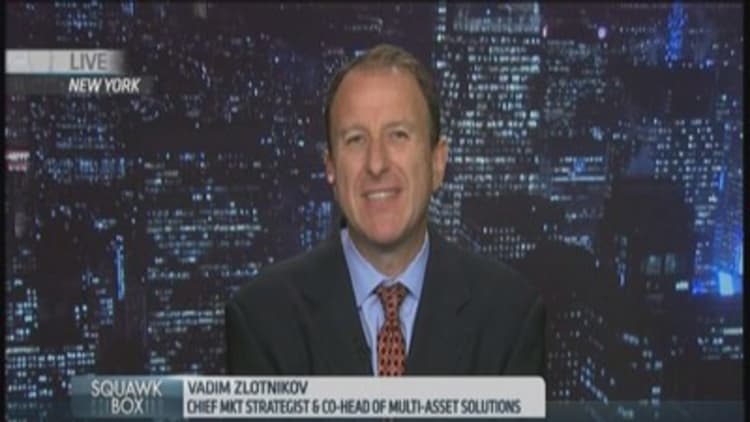Asian equities ended mixed on Thursday as investors reacted to the end of quantitative easing in the U.S. and the region's latest earnings.
The U.S. central bank ended its historic monthly bond purchase program on Wednesday, as widely expected. However, it maintained that interest rates will remain near zero for a considerable period of time. In its accompanying policy statement, the Fed upgraded its outlook for the labor market, which some analysts take as a sign that the bank is focusing on an interest rate rise.
Read MoreAsia stocks willrally into year-end: Goldman
"Today's statement from does not lend credence to the idea that the first rate increase is off the table for June 2015. Yields, which have dropped recently simply do not reflect the Fed's current forecasts. In the absence of a major deterioration in macro or financial conditions, today's statement primes the market for further hawkish guidance at the next FOMC meeting," said Erik Weisman, fixed income portfolio manager at MFS Investment Management.
Wall Street shares posted modest losses, rebounding from session lows, following the decision.
Shanghai up 0.7%
China's benchmark Shanghai Composite hit its highest level since early September, extending gains into a third consecutive session, after China's State Council said it would boost consumption in key sectors like e-commerce, housing, tourism and education.
Railway shares were the top gainers after China Railway Corporation said all 64 railway projects planned for this year would start before year-end. China Railway Construction and China Railway Group rallied 3 and 10 percent, respectively.
In earnings news, banks ICBC and Bank of Communications ended over 1 percent higher after third-quarter net profits rose 8 and 6 percent, respectively, from a year earlier. PetroChina gained 0.4 percent after profits fell 6.2 percent on year.

Hong Kong stocks were lower after hitting a more than one-month high on Wednesday. CNOOC skidded 5 percent after quarterly revenue fell 4.6 percent on year.
Nikkei up 0.7%
Japanese shares rose to a new three-week high for the second straight day, after the yen weakened to a more than three-week low against the dollar.
Read MoreBOJ faces failure as deflation deadline looms
Nintendo added 1 percent, paring gains from a 4 percent rally earlier, after reporting an operating profit of $86 million in the July-September period, compared to a loss a year earlier.
Mitsubishi Motors tanked nearly 4 percent after the automaker's revenues came in flat for the three months ended September 30.
ASX gains 0.5%
Australia's benchmark index S&P ASX 200 ended at its highest level since September 12, snapping two days of losses.
National Australia Bank rose 0.8 percent after the lender said exiting its troubled U.K. business was a priority following a weak earnings report. The firm reported a decline in full year cash earnings for the second time in three years.
Meanwhile, New Zealand's benchmark NZX50 index closed at a fresh record peak for the sixth straight session after the Reserve Bank of New Zealand kept its policy rate steady at 3.5 percent for the second meeting in a row.

Kospi dips 0.1%
South Korean shares moved off Wednesday's three-week high after September factory output missed expectations, rising just 0.1 percent on month after a 3.9 percent drop in August.
Read MoreIs South Korea headed for Japan-style deflation?
Index heavyweight Samsung Electronics rallied over 4 percent, reversing earlier losses, after reporting a 60 percent annual drop in third-quarter profit, a three-year low.
Nifty up 0.6%
Indian shares rose for a third straight day while the rupee fell to a two-week low against the greenback.

